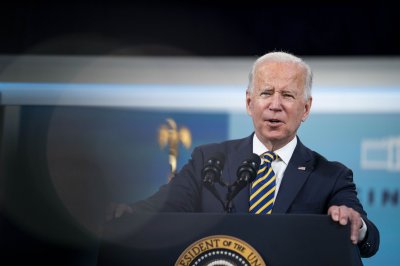Topic: Alexander Hamilton
Quotes
It will be the office of the President to nominate, and, with the advice and consent of the Senate, to appoint. There will, of course, be no exertion of choice on the part of the Senate. They may defeat one choice of the Executive, and oblige him to make another; but they cannot themselves choose -- they can only ratify or reject the choice of the President
The Peter Principles: A justice for all Feb 26, 2003
The important constitutional check which the power of instituting impeachments in one part of the legislative body, and of determining upon them in the other, would give to that body upon the members of the judicial department. This is alone a complete security. There can never be danger that the judges, by a series of deliberate usurpations on the authority of the legislature, would hazard the united resentment of the body entrusted with it, while this body was possessed of the means of punishing their presumption by degrading them from their stations
Outside View: Pledging our sacred honor Jul 15, 2002
Alexander Hamilton (January 11, 1755 or 1757 – July 12, 1804) was a Founding Father, soldier, economist, political philosopher, one of America's first constitutional lawyers and the first United States Secretary of the Treasury. He has been described as one who "more than any other designed the Government of the United States": As Secretary of the Treasury, Hamilton was the primary author of the economic policies of the George Washington Administration, especially the funding of the state debts by the Federal government, the establishment of a national bank, a system of tariffs, and friendly trade relations with Britain. He became the leader of the Federalist Party, created largely in support of his views, and was opposed by the Democratic-Republican Party, led by Thomas Jefferson and James Madison.
A believer in a militarily strong national government, Hamilton served in the American Revolutionary War. At the start of the war, he organized an artillery company and was chosen as its captain. He later became the senior aide-de-camp and confidant to General George Washington, the American commander-in-chief. He served again under Washington in the army raised to defeat the Whiskey Rebellion, a tax revolt of western farmers in 1794. In 1798, Hamilton called for mobilization against France after the XYZ Affair, and secured an appointment as commander of a new army, which he trained to prepare for a war. Although hard-fought at sea, however, the Quasi-War was never officially declared. In the end, Adams found a diplomatic solution that avoided war.
Born and raised in the West Indies, Hamilton came to North America for his education, sponsored by people from his community. He attended King's College (now Columbia University). After the American Revolutionary War, Hamilton was elected to the Continental Congress from New York. He resigned to practice law and founded the Bank of New York. He was among those dissatisfied with the first national governance document, the Articles of Confederation. While serving in the New York Legislature, Hamilton was sent as a delegate to the Annapolis Convention in 1786 to revise the Articles, but it resulted in a call for a new constitution instead. He was one of New York's delegates at the Philadelphia Convention that drafted the new constitution in 1787, and was the only New Yorker who signed it. In support of the new Constitution, Hamilton wrote much of the Federalist Papers, still an important source for Constitutional interpretation. In the new government under President George Washington, he was appointed the Secretary of the Treasury. An admirer of British political systems, Hamilton was a nationalist who emphasized strong central government and successfully argued that the implied powers of the Constitution could be used to fund the national debt, assume state debts, and create the government-owned Bank of the United States. These programs were funded primarily by a tariff on imports and a highly controversial excise tax on whiskey.
It uses material from the Wikipedia article "Alexander Hamilton."














